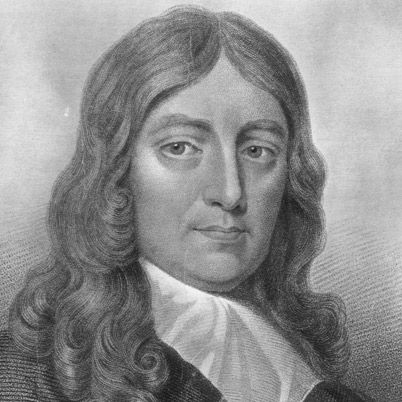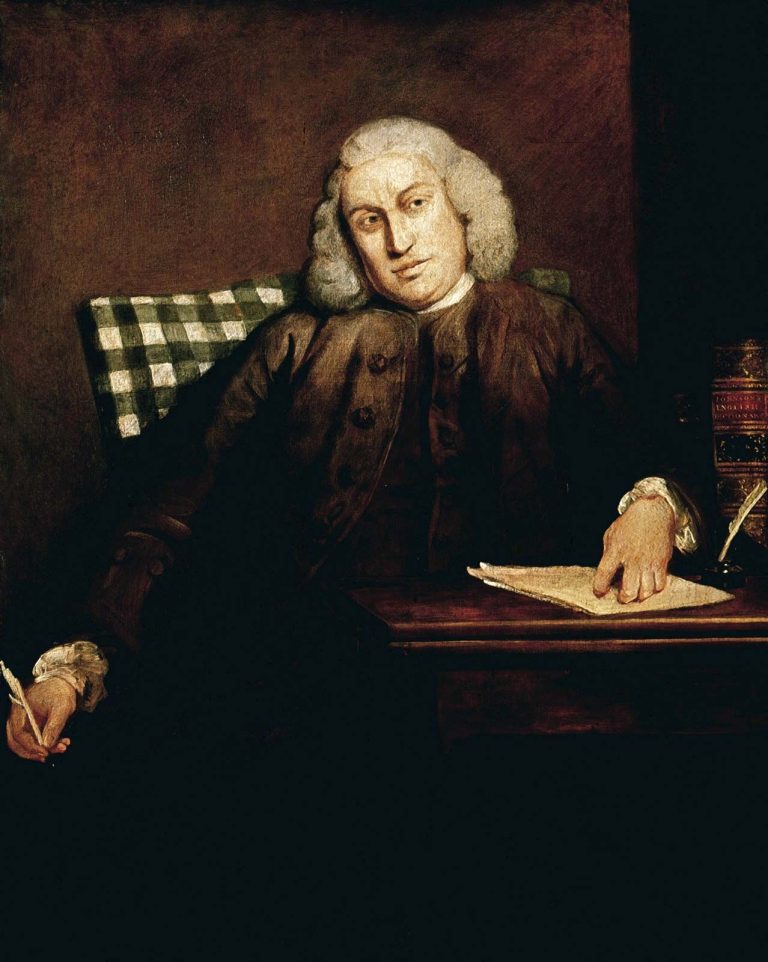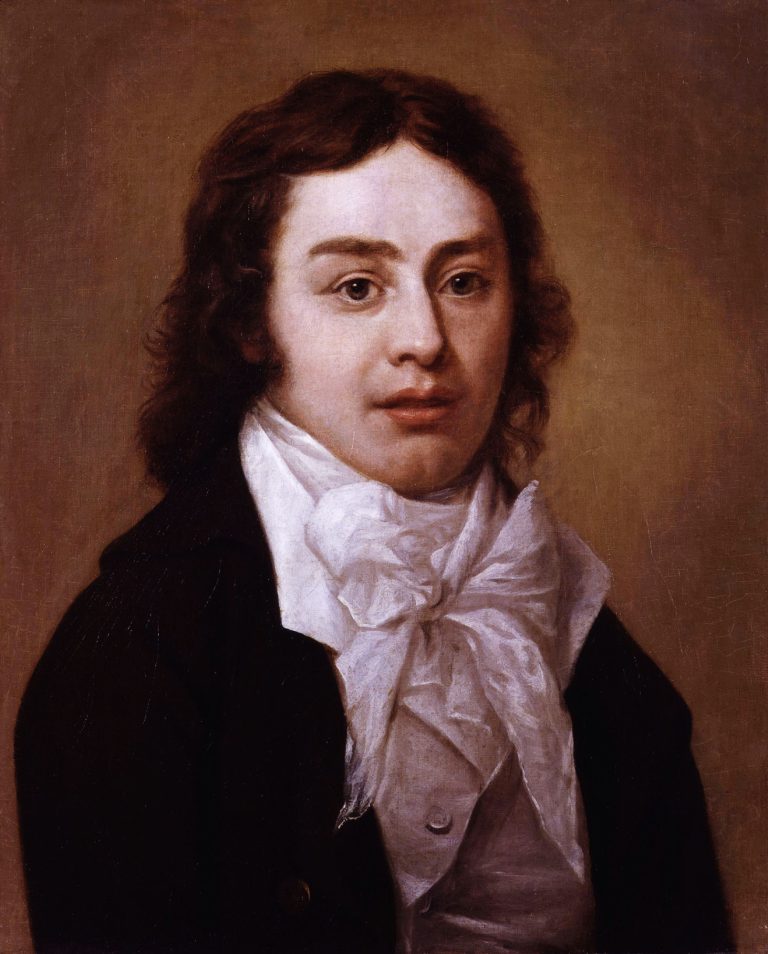John Milton was a 17th-century English poet and intellectual. His 1667 epic poem “Paradise Lost” is considered one of the greatest works in English literature.
Born on December 9, 1608, in London, Milton developed a reputation for his scholarly and poetic brilliance. Educated at Christ’s College, Cambridge, he wrote extensively on political, religious, and social issues of his time. Best known for “Paradise Lost,” Milton’s work displays his mastery of blank verse and his deep engagement with the political and spiritual turmoil of his era.
His literary contributions extend beyond poetry with significant tracts on freedom of the press and individual rights. Despite going blind in the mid-1650s, Milton continued to compose poetry, with the help of aides, leaving an indelible mark on the literary world before his death on November 8, 1674. His body of work has endured, influencing countless poets and thinkers across centuries.
Early Life And Education
The journey through the early days of John Milton, a towering figure in English literature, reveals the formative years that shaped his genius. His education and background played pivotal roles in molding his interdisciplinary erudition and his poetic voice. Let’s delve into the cradle of Milton’s life to understand the educational foundations on which he built his legacy.
Birth And Childhood Background
John Milton was born in December 1608 into a prosperous family. His father, also named John, was a scrivener by profession and a composer of some repute. This nurturing household in Bread Street, London, brimmed with intellectual stimulation and musical ambiance, which profoundly influenced Milton’s early years. Milton’s mother, Sarah Jeffrey, ensured that their home was a haven of religious devotion and learning.
Initial Education And Influences
Milton’s education commenced with rigorous instruction from private tutors, emphasizing classical languages and Christian tenets. He revealed an aptitude for language from a young age and was well-versed in Latin, Greek, and Hebrew by the time he approached adolescence. Notable tutors like Thomas Young played a vital role in imprinting the love for literature and poetry in the young Milton’s mind.
Cambridge Years And Poetic Beginnings
In 1625, Milton began his tenure at Christ’s College, Cambridge. It was an environment teeming with scholarly pursuit. However, his time at Cambridge wasn’t without strife; he was temporarily suspended due to a clash with his tutor. Despite this, his Cambridge years were formative—a cocoon for his burgeoning literacy. Here, Milton composed early poems like “On the Morning of Christ’s Nativity” and “L’Allegro,” which hinted at his later poetic eminence. His graduation with a Master of Arts in 1632 marked not just an academic achievement, but the blossoming of a literary colossus.

Credit: en.wikipedia.org
Literary Ascendancy
John Milton, a towering figure in literature, reached his literary ascendancy through a blend of brilliant poetry and a strong voice in public life. This period reveals a complex tapestry of work, characterized by profound themes and a commitment to political discourse. Witness his journey from early poetic ventures to becoming one of the most respected writers in English history.
Early Poetic Works And Recognition
John Milton’s literary brilliance began to shine with his early poetic endeavors. His works, laden with rich language and classical allusions, soon earned the young scholar significant attention. Here are key highlights:
- “On Shakespeare” – a memorable foreword, paying homage to the bard.
- “L’Allegro” and “Il Penseroso” – poems exploring contrasting perspectives on life.
- “Comus” – a masque, blending Milton’s moral concerns with lyrical beauty.
Prominent Themes And Styles
Milton’s work spans a vast array of themes, each enriched with a distinctive style:
| Theme | Description |
|---|---|
| Freedom | A recurring motif, championing liberty of conscience and expression. |
| Religion | Deeply embedded in his verse, exploring divine providence and fallibility. |
| Human Condition | Ongoing tension between the spiritual and the earthly in his narratives. |
Involvement In Public Life And Prose Writing
Milton’s ascendancy was not confined to poetry. His participation in public life through prose was equally significant:
- “Areopagitica” – a powerful defense of free speech.
- Political pamphlets – texts that shaped 17th-century political thought.
- Government roles – serving as Cromwell’s Latin secretary, influencing international relations.
His prose work mirrored his poetic themes, asserting his stance on civil rights and government functions, cementing his place as an influential figure not only in literature but in the shaping of society.
Political Involvement
John Milton’s life was not just about poetry. He was deep into the heart of English politics. His pen became a powerful weapon. It influenced the political landscape of 17th-century England. Now, let’s explore his pivotal political roles.
Civil War Contributions
Milton’s writings echoed the cause of liberty. They resonated with fervent support for the Parliamentary cause. During the English Civil War, his pamphlets voiced the struggles for power. They reflected on the rights of citizens against tyranny.
Role As Cromwell’s Secretary
Under Oliver Cromwell’s rule, Milton became the Secretary for Foreign Tongues. His command over language proved pivotal. He drafted official letters. He penned defenses of the Commonwealth government. His role was crucial and influential.
Impact Of The Restoration
After the monarchy’s return, Milton faced a backlash. His works were banned; his ideas, suppressed. But this period shaped his masterpieces. Paradise Lost was born out of this turbulent era. It offered insights into his political views and personal resilience.

Credit: www.britannica.com
Personal Challenges And Adversities
Exploring the life of John Milton reveals a tapestry woven with triumph and struggle. He faced many personal challenges and adversities throughout his life, which shaped his writing and worldview. Milton’s resilience, despite these hardships, only underscores the remarkable achievements he made as a poet and thinker. Let’s delve into the pivotal personal adversities that marked Milton’s life.
Family Life And Marriages
John Milton’s family life was complex and often fraught. He married three times, each bringing its own set of challenges. His first marriage to Mary Powell faced immediate strain due to incompatibility and her return to her family home. Little is known about his second wife, Katherine Woodcock, except her untimely death. His third wife, Elizabeth Minshull, remained with him until his death. The successive losses of his partners took a profound emotional toll on Milton.
Health Issues And Loss Of Sight
- Milton’s health declined as he aged, most notably his eyesight.
- His intense dedication to scholarship often meant neglecting his health.
- In the 1650s, Milton became completely blind, relying on aides for his literary work.
- Despite his blindness, Milton created some of his most famous pieces, including Paradise Lost.
Financial And Social Troubles
Milton’s life was not one of financial stability, which caused significant stress. His work often took precedence over his finances, leading to economic hardship. After the restoration of the monarchy, Milton was arrested for his political writings, although he was soon released. This event caused a decline in his social standing. His beliefs often put him at odds with the current political climate, adding to his social struggles. Despite these issues, Milton persevered and continued to write and publish his works.
Masterpiece Creation: Paradise Lost
The story of “Paradise Lost” is neither simple nor light. It is a rich tapestry of themes, biblical allegories, and human psychology woven by John Milton, one of history’s most influential poets. In this exploration, we dive into the masterpiece that is “Paradise Lost,” understanding the profound concept and inspiration behind it, the struggles faced during its writing process, and the enduring critical reception and legacy that cements Milton’s work in the annals of literary history.
Concept And Inspiration
John Milton’s “Paradise Lost” speaks to the core of human struggle, good versus evil. This epic poem draws heavily from the Bible, specifically the Book of Genesis. Milton uses this as a canvas to illustrate the fall of humankind through Adam and Eve, painting a picture of loss and hope. The poem stems largely from Milton’s own life experiences and his contemplation of human freedom, responsibility, and redemption.
Struggles And The Writing Process
- Writing “Paradise Lost” was an arduous journey for Milton.
- Completely blind when he undertook this epic work, he relied on transcription help from others.
- The political unrest of his time also fed into the tumultuous nature of the text.
- Milton’s tireless commitment to his craft saw the poem through multiple drafts and revisions, a testament to his resilience and creative genius. The final product is a sprawling ten-book, later revised to twelve, a masterwork that fearlessly questions and explores the complexities of divine justice.
Critical Reception And Legacy
| Aspect | Details |
|---|---|
| Initial Reaction | Polarizing: Some praised the work’s brilliance, while others were critical of its theological implications. |
| Enduring Influence | The poem impacted literature, serving as an inspiration for countless works and discussions in philosophy, theology, and politics. |
| Modern Viewpoint | Today, “Paradise Lost” is celebrated as a cornerstone of English literature, revered for its complexity and artistry. |
Milton’s “Paradise Lost” continues to resonate. Its themes of freedom, rebellion, and redemption offer a timeless reflection on human nature. As scholars and readers dissect its intricate verses, Milton’s mastery solidifies, immortalizing his vision and ensuring that his voice echoes through the ages.

Credit: www.biography.com
Other Notable Works
The legacy of John Milton extends beyond his epic masterpiece, “Paradise Lost.” His prolific career spawned a wealth of literary and non-literary works. Each piece echoes Milton’s mastery of language and his deep engagement with the themes of faith and human nature.
Paradise Regained And Samson Agonistes
“Paradise Regained,” published in 1671, serves as a sequel to the colossal “Paradise Lost.” This work, shorter in length, focuses on Jesus’s temptation in the wilderness. It highlights the resilience of the human spirit and divine redemption.
In “Samson Agonistes,” Milton draws on the Biblical story of Samson. He portrays the tragic hero’s struggle against the Philistines and ultimate sacrifice. This work exemplifies the poetic drama of the 17th century and reflects Milton’s blind state at the time of its composition.
Sonnet Contributions
- “On His Blindness,” where Milton muses on his loss of sight and the role of a poet.
- “On the Late Massacre in Piedmont,” a powerful political statement against the persecution of Waldensians.
- “On His Deceased Wife,” is a touching personal reflection on love and loss.
Milton’s sonnets are not just mere poems; they stand as benchmarks of English literature. Each sonnet showcases his ability to convey profound emotion and thought within the constraints of this strict poetic form.
Theological And Political Treatises
Milton was not only a poet but also a thinker. His non-literary writings delve into complex societal and religious issues. These treatises reveal the intellectual underpinnings of many of his poetic works.
Significant treatises include “Areopagitica,” a defense of free speech and press, and “The Doctrine and Discipline of Divorce,” which controversially argued for the right to divorce on the grounds of incompatibility. Both texts exerted a lasting influence on Western thought.
Intellectual Influence And Philosophy
The Intellectual Influence and Philosophy of John Milton stand as a towering beacon across the ages. This eminent 17th-century poet and thinker left an indelible mark on literature, politics, and education. His visionary ideas continue to resonate, providing insight and sparking debate centuries after his passing.
Religious Views And Controversies
Milton’s religious stance often led to stirring debates. His beliefs were complex, but he is well-known for his advocacy of predestination, the notion that God has predetermined the fate of souls. Far from mainstream, his views were seen as radical during his time. They challenged the church and fueled many controversies, which still attract scholarly discussions today.
Legacy In Political Thought
The legacy of Milton in political thought is profound. He boldly championed ideas of republicanism and freedom of speech, and his influential pamphlets ‘Areopagitica’ still inspire civil liberties advocates. His support for the execution of King Charles I shocked his contemporaries but cemented his place as a steadfast advocate of government by the people.
Contributions To Education And Society
John Milton’s contributions to education are equally significant.
- ‘Tractate on Education’ urged a broad curriculum.
- He focused on the development of the whole person.
- Milton valued languages, humanities, and the sciences.
His holistic approach positioned education as a vital societal foundation, shaping minds and morals. As a true polymath, Milton’s influence bridged the educational and societal sectors, strengthening the intellectual fabric of his era and beyond.
Death And Posthumous Fame
The final chapter of John Milton’s life is as monumental as his work. Both his death and the legacy he left behind paint the picture of an artist whose work transcended his own era.
Final Years And Death
John Milton’s last days were marked by declining health and financial hardship, yet his literary spirit remained undiminished. Blind and burdened, Milton passed away on November 8th, 1674, from complications likely related to kidney failure. His burial took place at St Giles-without-Cripplegate in London, a site that still draws countless admirers of the esteemed writer.
Milton’s Place In Literary Canon
Milton’s genius earned him an indisputable status among the greats of English literature. His masterpiece, ‘Paradise Lost’, is often hailed as one of the greatest epics in the language. The breadth of his influence extends through centuries, reflecting on themes of freedom, human nature, and divine providence.
Continued Relevance And Adaptations
Milton’s work continues to inspire and adapt across various media even today. From theater productions to modern-day interpretations in films and books, his tales remain vividly alive. Scholars and creators keep revisiting Milton for his complex characters and profound philosophical insights, ensuring his legacy endures.
Conclusion
John Milton’s legacy transcends time, his works echoing through centuries. His masterpieces, especially “Paradise Lost”, still captivate readers, reflecting human nature and complexity. As we close this chapter on Milton, it’s clear his literary contributions remain unparalleled, inspiring generations with his poetic brilliance and intellectual depth.
Let’s honor this literary giant by continuing to explore and cherish his profound words.





